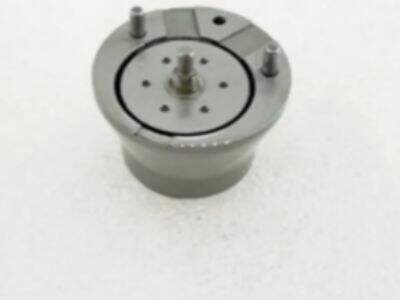Kontrol vanaları, yüksek hassasiyetli test standlarının kritik bir bileşenidir. Bu vanalar, testlerimizin doğru ve tekrarlanabilir olmasını sağlayan akışkanların ve gazların kontrol edilmesine imkan tanır. Kontrol vanası sızıntısı, bu tür test tezgâhları için oldukça maliyetli bir sorun haline gelebilir; ancak genellikle fark edilmediği için, habersiz test mühendisleri çözüm yollarını merak eder durumda kalır. Blog yazısını okuyun ve mümkünse kimliğimizi gizli tutalım. Ancak kontrol vanası sızıntısının erken tespiti ve optimum yerleşim, test tezgâhınızda arızalara neden olan duruş süresini azaltır ve performansı en üst düzeye çıkarır.
Kontrol Vanası Sızıntısının Etkileri Hakkında Bilgi Edinin
Kontrol valfi sızıntısı, valfin kapalı olması gerektiği halde sıvının veya gazın istenmeyen şekilde valften geçmesi anlamına gelir. Bu durum yanlış test sonuçlarına neden olabilir veya ekipmana zarar verebilir ve hatta tehlikelere yol açabilir. Yüksek hassasiyetli test tezgahlarında kontrol valfi sızıntısı sorun yaratabilir çünkü en küçük hata bile büyük fark yaratabilir.
Yüksek Hassasiyetli Test Tezgahlarında Erken Tespit Kritik Öneme Sahiptir
Kontrol vanalarındaki sızıntıların tespiti yüksek hassasiyetli test tezgahları için son derece önemlidir. Sızıntıların erken tespiti teknisyenlerin sorunu kötüleşmeden önce düzeltmesini sağlar ve bu da yanlış test sonuçlarının ve potansiyel ekipman hasarlarının olasılığını azaltır. Ayrıca, iş güvenliği açısından tüm personel için güvenli bir çalışma ortamı oluşturmak adına güvenlikle ilgili sorunlara dair erken uyarı da sağlayabilir.
En İyi Uygulamalar
Yüksek hassasiyetli test bankolarında kontrol vanası sızıntısını azaltmak için bir dizi iyi uygulama vardır. Rutin kontrol vanası muayenesi ve bakımı, sorunları erken tespit etmeye yardımcı olabilir. Ayrıca proaktif sistem sızıntı izleme sistemi kurmanız ve tespit edilen sızıntıların hemen onarılmasını sağlamalısınız. Teknisyen Uyarıları – Teknisyenlerin sızıntı belirtilerini görmeleri için eğitim verilmesi ve doğru araçlar ile yetkinlik kaynaklarıyla donatılması, durma süresinin yaşanmasından önce küçük sorunların fark edilmesini sağlar (rulman aşınma kiti / sapma aletleri / döngü kontrol kiti gibi düşünülmelidir). Test bankosu performansıyla ilgili herhangi bir durma süresinin en aza indirilmesine yardımcı olur. yakıt ölçüm kontrol vanası sızıntı belirtilerini görmeleri için eğitim verilmesi ve doğru araçlar ile yetkinlik kaynaklarıyla donatılması, durma süresinin yaşanmasından önce küçük sorunların fark edilmesini sağlar (rulman aşınma kiti / sapma aletleri / döngü kontrol kiti gibi düşünülmelidir). Test bankosu performansıyla ilgili herhangi bir durma süresinin en aza indirilmesine yardımcı olur.
İşlemi durdurmadan boruların nereden sızıntı yaptığını bulmak
Yüksek hassasiyetli test bankolarında durma süresini azaltmak çok önemlidir çünkü her duran dakika büyük mali etkilere yol açabilir. Sonuç: Sızıntıların hızlı ve doğru şekilde tespiti, minimuma indirmek için hayati öneme sahiptir yakıt enjekörü kontrol vanası sızıntı kaynaklı durma süresi. Sızıntıları hızlı bir şekilde tespit ederek bunların önüne geçmek için çalışanlara verilen eğitimlerle birlikte proaktif bir izleme sistemi, durma sürelerini en aza indirmekte ve test tezgahlarının en yüksek performans seviyelerinde çalışmasını sağlamada büyük avantajlar sunar.
Proaktif Sızıntı İzlemesi ile Test Tezgahlarının Performansını İyileştirme
Kontrol valfi sızıntılarının proaktif olarak izlenmesi, test işlemleri sırasında sızıntıların hızlı bir şekilde tespit edilmesini ve hemen giderilmesini sağlayarak test tezgahı performansını artırabilir. Kontrol vanalarının düzenli olarak izlenmesi ve sızıntıların test tezgahı operasyonuna zarar vermesinden çok önce yeterli önleyici önlemlerin alınması, tekrarlanabilir ve güvenilir test sonuçlarının elde edilmesini sürdürürken ekipmanın ömrünü uzatır, güvenlik risklerini azaltır. Bu durum, test kalitesinin ve performansın artmasını sağlar.
Sonuç Kontrol vanası sızıntı tespiti, yüksek hassasiyetli test tezgahlarının bakımında kaçınılmaz bir konudur. Teknisyenler, kontrol vanası sızıntısının etkisini anlamak için gereken becerileri geliştirerek, dış etkenlere ve gürültüye karşı en iyi uygulamaları uygulayarak, sızıntıların yetersiz tespiti nedeniyle oluşan kesintileri azaltarak ve tüm yönleri proaktif bir şekilde takip ederek test tezgahı performansını iyileştirerek bunu başarabilirler. Derun Mechanical, kontrol vanası enjektörü yüksek hassasiyetli test tezgahında sızıntı tespitini kendi sorumluluğu olarak kabul eden bir şirkettir.


